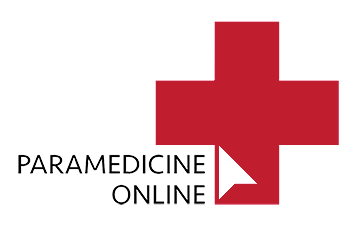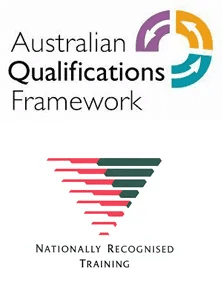The latest and most recent skills qualification update.
About the HLT41120 – Certificate IV in Health Care qualification.
The field of paramedicine and emergency response has become one of the most popular career choices of late. There’s no doubt, this is one of the most rewarding jobs you can do.
The HLT41120 – Certificate IV in Health Care prepares you to work in the out-of-hospital emergency health care sector as a Basic Life Support medic (BLSM).
Throughout the course, you’ll learn about human anatomy, biology, human body systems, a little bit of math, English and other concepts; such as appreciating the value of cultural diversity, your legal obligation to care for your patient, medical terminology for effective communication and of course, you’ll learn how to become proficient using the latest life-saving medical equipment.
A big part of your job as a Basic Life Support medic is talking with patients, their families and of course work colleagues and other service providers.
Skills you’ll learn in this course
The HLT41120 – Certificate IV in Health Care is not a basic medical emergency course. Although you are referred to as a Basic Life Support medic, the training consists of a mix of online theory, a clinical workshop (5-days) and placement (work experience) in the community.
**Note: Students are requested to source their own placement. We alert companies and students of available placement opportunities. However it is up to the student to follow up and apply for placement.
When qualified, you’ll possess the knowledge and skills to confidently provide clinical assessment in an out-of-hospital environment. For the most part, you’ll be ‘first-on-scene’ in a local emergency; attending to patients who require assistance because of existing ailments and recent injuries.
Bear in mind that not every emergency call-out involves clinical decision making whereby you will be bandaging wounds and administering appropriate drugs to your patient. There will be many times where you will use your empathy and conversational skills to calm and assure your patient. They may be suffering an anxiety attack or have gone into shock; or maybe they just need to hear a calm and assuring voice in their hour of need.
To complete the HLT41120 – Certificate IV in Health Care qualification in full, there is a requirement to complete 80 hours of clinical placement; as well as attend a 5-day clinical workshop. Workshops are held in NSW, QLD, VIC and WA.Before attending the workshop, you will have completed at minimum 10-11 units of study (more about this further down this page). Workshops are a pivotal moment in your training progress, as it is here you will meet and bond with other students just like you. You’ll share the same passion, interest and goals to help save lives and give something back to your community.
At the workshops you’ll work in teams as well as on your own to tackle different simulated scenarios you will come across out in the community. Workshops are designed to be as realistic and authentic as possible; including completing scenarios outdoors in all weather, in different locations.
Online study, with face-to-face clinical workshops and work experience
Maximum allowed completion time 18 months. Students are able to complete this in less time (if desired). Average course duration is 12-18 months. This qualification allows you to immerse yourself in paramedical study without having to alter your current lifestyle. If you are currently working in a job, it means you can keep on earning and study towards changing/upgrading your career in your spare time.
Hands-on work experience?
This qualification also requires you to complete 80 hours of clinical placement, which can be completed by working in an aged care facility and first aid/medical event companies etc. Whilst every effort is made to help you gain essential clinical placement, you should make your own enquiries and develop your own network. The 80 hours of clinical work experience will place you in direct contact with the public, where you will experience first-hand what it’s like to be the person so many people come to rely and depend on.
**Note: Students are requested to source their own placement. We alert companies and students of available placement opportunities. However it is up to the student to follow up and apply for placement.
This invaluable experience will fill you with confidence and put the theory you have learned into practice. Event medic companies are great places to work. Being out in the public eye and dealing with unexpected incidents will help you build your social skills and allow you to become a masterful communicator and organiser.
Whilst completing the clinical placement, you’ll also become more aware of your surroundings and possess a heightened sense of situational awareness. This is where you’ll be able to multi-task and observe your patient’s body symptoms, whilst being acutely aware of your environment and of course, your own personal safety and the safety of your colleague(s).
Careers for diploma-qualified graduates.
If you’re looking to develop a fulfilling and long career in out-of-hospital emergency health care, the new HLT41120 – Certificate IV in Health Care qualification is a good starting point. This nationally recognised qualification covers health and emergency care in greater depth than Certificate III in Non-Emergency Transport; (superseded by the HLT31120 – Certificate III in Non-Emergency Patient Transport) and requires less study than the HLT51015 – Diploma in Paramedical Science. (superseded by the HLT51020 – Diploma of Emergency Health Care).
If you decide you want to go further and complete the diploma, you can always upgrade at a later stage. (This is a very popular option).
Jobs you can do with a Certificate IV.
- First Responder (be on-site to administer first aid and life saving care)
- Basic Life Support medic
- Private Hospital Transport Officer
- Ambulance Officer (local community)
- Ambulance Volunteer (local community)
- Industrial Medic (mining, construction, manufacturing, oil & gas – may need a diploma)
- Emergency Medical Dispatcher (Call Centre Operator) * additional training required
These courses are traditionally provided by an Ambulance Service. - Private company medic
What you’ll be studying
| Study process |
Unit Code and Description |
| 1 | BSBMED301 – Interpret and apply medical terminology appropriately |
| 2 | HLTINF006 – Apply basic principles and practices of infection prevention and control |
| 3 | HLTAAP002 – Confirm Physical Health Status |
| 4 | HLTOUT010 – Communicate in complex situations to support health care |
| 5 | HLTOUT007 – Transport non-emergency patients under operational conditions |
| 6 | HLTWHS005 – Conduct manual tasks safely |
| 7 | HLTWHS002 – Follow safe work practices for direct client care |
| 8 | HLTOUT008 – Manage a scene |
| 9 | HLTOUT004 – Assess and deliver basic clinical care |
| 10 | HLTOUT001 – Implement safe access and egress |
| 11 | CHCCCS020 – Respond effectively to behaviours of concern |
| 5-day Clinical Workshop | |
| 80 hours Clinical Placement | |
| 12 | CHCPRP003 – Reflect on and improve own professional practice |
| 13 | BSBFLM303 – Contribute to effective workplace relationships |
| 14 | CHCLEG001 – Work legally and ethically |
| 15 | CHCDIV001 – Work with diverse people |
| 16 | HLTWHS006 – Manage personal stressors in the work environment |
Applying Certificate IV skills in the real world.
This training is absolutely aligned with what you’ll be expected to handle when working in the community. There could be times when you’re called to attend an incident and you’ll be in charge and everyone will be relying on you to keep your patient safe and supported.
To apply:
- Age: Be at least 16 years of age (parental consent required if under 18)
- Education: At least year-10 high-school or equivalent
- Residency: Be an AUS/NZ citizen, AUS PR, or hold an approved temporary visa
- Hold a current drivers licence (*You may apply and enrol holding your learner’s (L) licence, however, you will need a provisional licence (P) before attending workshop 1 (approx. 12 months into your course).
- Technology: Have regular access to a computer and internet, and be comfortable with online study and assessments
Pre-intake checks:
- Language, Literacy and Numeracy: Short quiz to check basic English and math skills, and help us better support you through your course (unless already holding equivalent or higher qualification)
- Health: Medical declaration to ensure you are fit to study
Your enrolment into this qualification will be with Industry Pathways (RTO:32513). All enrolment information and issuance of certificates will be issued under Industry Pathways trading name, Australian Paramedical College.


